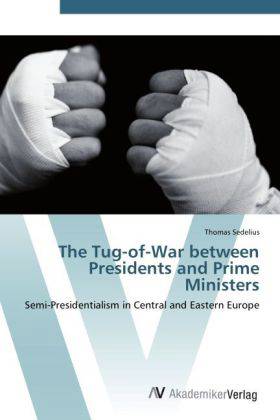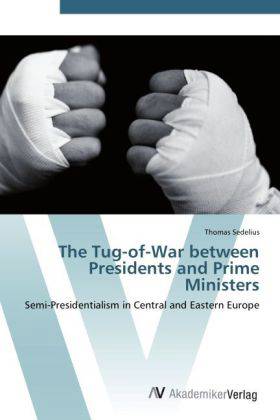
- Afhalen na 1 uur in een winkel met voorraad
- Gratis thuislevering in België vanaf € 30
- Ruim aanbod met 7 miljoen producten
- Afhalen na 1 uur in een winkel met voorraad
- Gratis thuislevering in België vanaf € 30
- Ruim aanbod met 7 miljoen producten
Zoeken
The Tug-of-War between Presidents and Prime Ministers
Semi-Presidentialism in Central and Eastern Europe
Thomas Sedelius
Paperback | Engels
€ 96,45
+ 192 punten
Omschrijving
Revision with unchanged content. Since the fall of the Soviet Union, authoritarian presidents have dominated politics in many post-Soviet countries. However, while strong-man rule seems to prevail, e.g. in Central Asia, Russia, and Belarus, recent popular upheavals in Ukraine, Georgia, and Kyrgyzstan, suggest that authoritarian presidentialism may not go unchallenged. Presidential power and constitutional prerogatives are essential components in this struggle between authoritarianism and democratisation. This study deals with institutional conflict in two forms of semi-presidentialism (premier-presidential and president-parliamentary systems) adopted among the majority of the post-communist countries in Eastern Europe and the former Soviet republics. The study concluds that premier-presidential systems have great governance potential provided that the party systems develop and consolidate. Regarding the president-parliamentary systems, however, the results are less encouraging. It is even argued in the thesis that the adoption of this system remains as one of the obstacles for democratic reforms in many post-Soviet states.
Specificaties
Betrokkenen
- Auteur(s):
- Uitgeverij:
Inhoud
- Aantal bladzijden:
- 320
- Taal:
- Engels
Eigenschappen
- Productcode (EAN):
- 9783639437188
- Verschijningsdatum:
- 4/07/2012
- Uitvoering:
- Paperback
- Formaat:
- Trade paperback (VS)
- Afmetingen:
- 152 mm x 229 mm
- Gewicht:
- 471 g

Alleen bij Standaard Boekhandel
+ 192 punten op je klantenkaart van Standaard Boekhandel
Beoordelingen
We publiceren alleen reviews die voldoen aan de voorwaarden voor reviews. Bekijk onze voorwaarden voor reviews.







